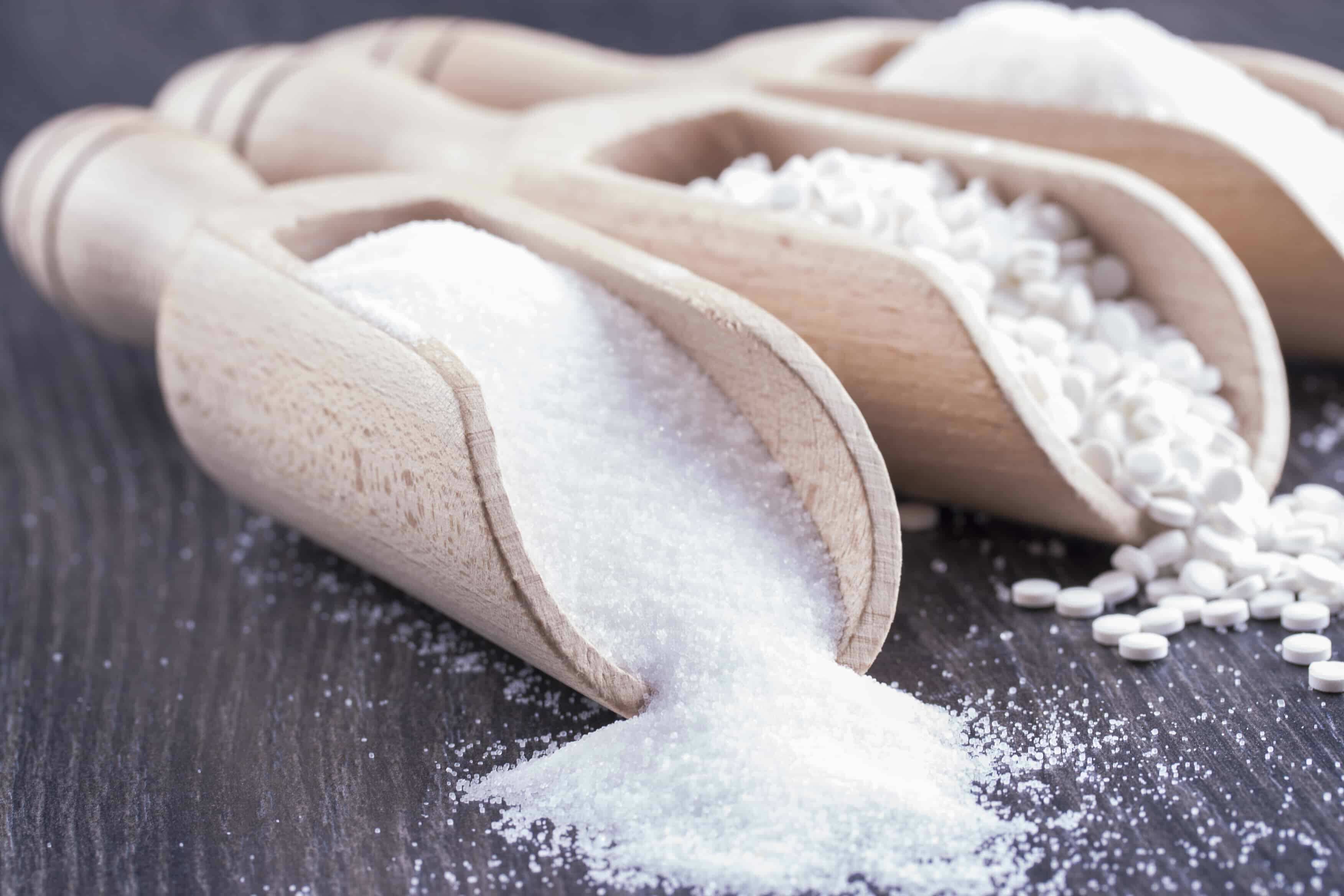
Aspartame is a common artificial sweetener found in many sugar-free and diet products. But what exactly is it? Aspartame is a low-calorie sweetener made from two amino acids: aspartic acid and phenylalanine. It’s about 200 times sweeter than sugar, so only a tiny amount is needed to sweeten food and drinks. This makes it popular among those looking to reduce sugar intake or manage weight. However, aspartame has sparked debates over its safety and health effects. Some claim it causes health issues, while others argue it’s safe when consumed within recommended limits. Curious about the facts? Let’s dive into 31 intriguing details about aspartame!
What is Aspartame?
Aspartame is a low-calorie artificial sweetener used in many sugar-free and "diet" products. It's known for being much sweeter than sugar, which means only a small amount is needed to achieve the desired sweetness.
- Aspartame is about 200 times sweeter than sugar.
- It was discovered accidentally in 1965 by chemist James M. Schlatter.
- The FDA approved aspartame for use in dry foods in 1981.
- Aspartame is made from two amino acids: aspartic acid and phenylalanine.
- It is used in over 6,000 products worldwide.
How Aspartame Works
Aspartame's sweetness comes from its ability to bind to taste receptors on the tongue. This interaction tricks the brain into perceiving a sweet taste.
- Aspartame breaks down into aspartic acid, phenylalanine, and methanol in the body.
- The methanol produced is less than what is found in many natural foods.
- Aspartame does not raise blood sugar levels, making it popular among diabetics.
- It is often used in combination with other sweeteners to enhance flavor.
- Aspartame is heat-sensitive and loses sweetness when exposed to high temperatures.
Health and Safety
Aspartame has been the subject of extensive research and debate regarding its safety. Regulatory agencies worldwide have evaluated its effects on health.
- The FDA has set the acceptable daily intake (ADI) for aspartame at 50 milligrams per kilogram of body weight.
- The European Food Safety Authority (EFSA) has a lower ADI of 40 milligrams per kilogram.
- Over 100 studies have confirmed the safety of aspartame for the general population.
- People with phenylketonuria (PKU) must avoid aspartame due to their inability to metabolize phenylalanine.
- Aspartame has been linked to headaches in some individuals, though evidence is inconclusive.
Aspartame in Everyday Products
Aspartame is found in a variety of foods and beverages, making it a common part of many diets.
- It is commonly used in diet sodas and sugar-free gum.
- Aspartame is also found in sugar-free yogurt and pudding.
- Many tabletop sweeteners, like Equal and NutraSweet, contain aspartame.
- Some medications and chewable vitamins use aspartame as a sweetener.
- Aspartame is often used in low-calorie desserts and snacks.
Environmental Impact
The production and use of aspartame have environmental considerations, though it is generally seen as having a lower impact compared to sugar production.
- Aspartame production requires less land and water than sugar production.
- It generates fewer greenhouse gases compared to sugar.
- Aspartame's long shelf life reduces food waste.
- The sweetener is biodegradable and breaks down in the environment.
- Packaging for aspartame-sweetened products is often lighter, reducing transportation emissions.
Controversies and Myths
Aspartame has been surrounded by various myths and controversies, often fueled by misinformation.
- Some believe aspartame causes cancer, but studies have found no conclusive evidence.
- Claims that aspartame causes neurological disorders are not supported by scientific research.
- Aspartame has been accused of causing weight gain, but it is used to reduce calorie intake.
- The myth that aspartame turns into formaldehyde in the body is false; the amounts are negligible and not harmful.
- Aspartame has been wrongly linked to multiple sclerosis and lupus, but no scientific evidence supports these claims.
Future of Aspartame
As research continues and new sweeteners emerge, the role of aspartame in the food industry may evolve.
- New formulations and blends with other sweeteners are being developed to improve taste and stability.
The Final Scoop on Aspartame
Aspartame, a popular artificial sweetener, has sparked debates for years. While it's approved by major health organizations like the FDA and WHO, some folks still worry about its safety. Studies show that moderate consumption is generally safe for most people. However, those with phenylketonuria (PKU) should avoid it due to their inability to metabolize phenylalanine, a component of aspartame.
It's found in many diet sodas, sugar-free gum, and low-calorie snacks. If you're trying to cut down on sugar, aspartame can be a helpful tool. Just remember, moderation is key. Too much of anything isn't great for you.
So, whether you love it or hate it, knowing the facts about aspartame helps you make informed choices. Stay curious, stay informed, and enjoy your sweet treats wisely!
Was this page helpful?
Our commitment to delivering trustworthy and engaging content is at the heart of what we do. Each fact on our site is contributed by real users like you, bringing a wealth of diverse insights and information. To ensure the highest standards of accuracy and reliability, our dedicated editors meticulously review each submission. This process guarantees that the facts we share are not only fascinating but also credible. Trust in our commitment to quality and authenticity as you explore and learn with us.
